Betty Gilpin and Lisa Taddeo Talk Prosthetic Penises, Carnal Desire, and the Power of Sexual Liberation in 'Three Women'
The star of the new Starz miniseries and author behind the source material break down one of the show's sexiest episodes.
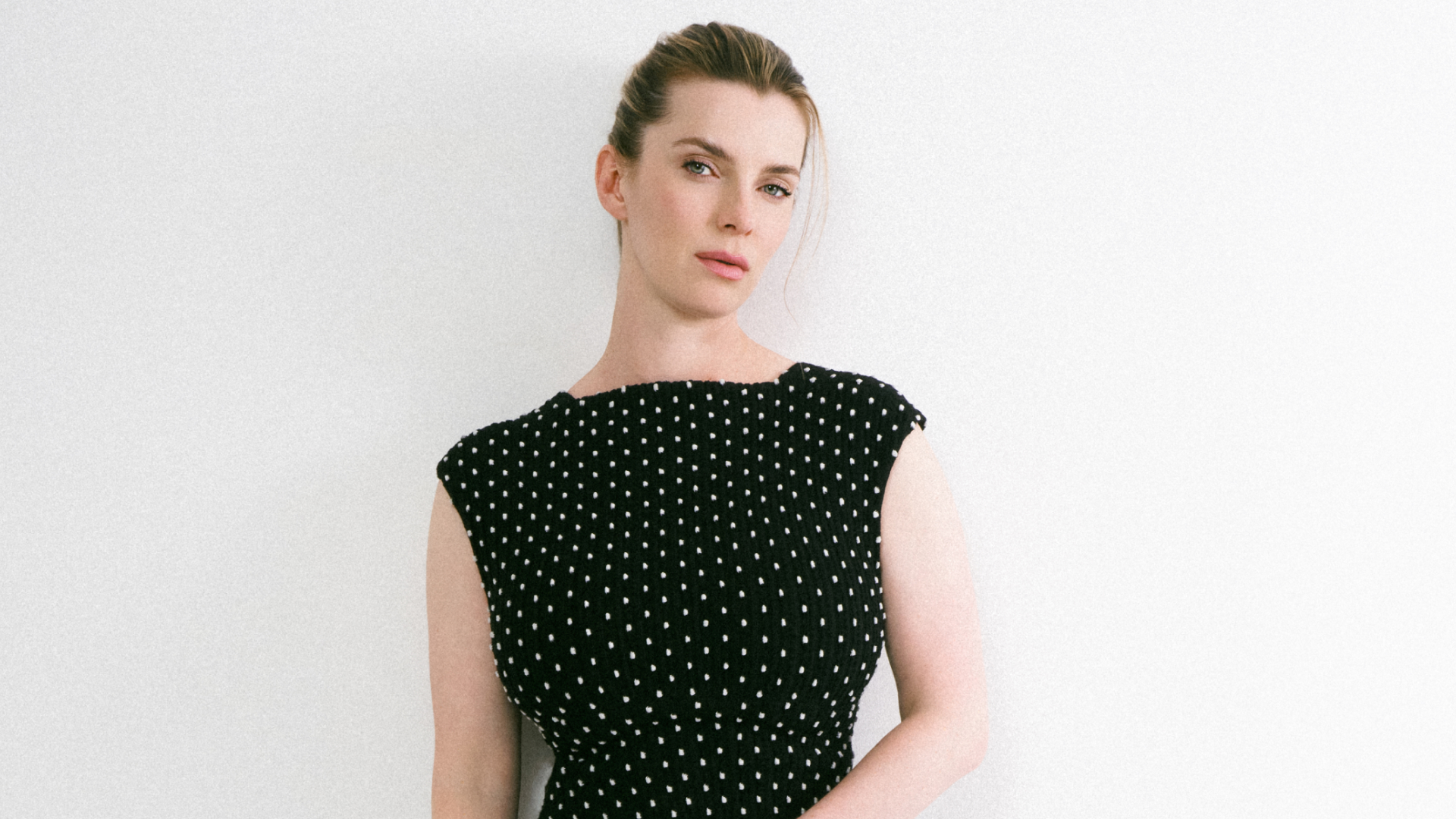
It wasn’t the sex scenes Emmy-nominated actress Betty Gilpin was most nervous about shooting in the book-to-screen adaptation of Lisa Taddeo’s Three Women. Instead, Gilpin had to embrace another form of inhibition shedding: dancing like nobody's watching. “To think about being in a group of friends of friends and standing up, being like, ‘I'm going to dance by myself at this P.F. Chang’s when no one else is dancing, I mean, I feel my throat closing thinking about that scenario,” Gilpin tells Marie Claire.
Nearly three years have passed since Gilpin filmed this scene as her character Lina Parish, but the flicker of dread is visible while she describes this moment to me over Zoom in early September. “To train for that moment alone was like Kill Bill-level mental training for me, but it was also a great acting exercise because [Lina’s] incapable of subtext. It's all on the surface,” Gilpin says. The scene in the second episode isn’t foreplay per se but speaks to the central crux of Three Women: women harnessing their own liberations; to feel seen and less alone—even if the only person who eventually joins Lina on the makeshift dance floor is a sympathetic waiter.
Based on Taddeo’s best-selling non-fiction book which set the literary world alight in 2019, the source material and Starz miniseries adaptation, which premiered on September 13, is a taboo-breaking depiction of female desire.

Betty Gilpin poses in a Three Women promotional shot.
Shailene Woodley plays Gia, a fictionalized version of Taddeo, who meets and tells the story of three wildly different women’s sex lives. Sloane Ford and Maggie Wilkin, played by DeWanda Wise and Gabrielle Creevy respectively, and Gilpin as Lina, a homemaker from suburban Indiana who reconnects with her great high school love after Lina’s husband (Sean Meehan) says kissing her gives him “the heebie-jeebies.” Lina wants to live a romance novel relationship, but her reality is an intimacy-starved marriage. Reaching out to high school boyfriend Aidan (Austin Stowell) on Facebook opens those pleasure doors, and the second episode (which airs on Starz on September 20) depicts the steamy results via period sex and prosthetic erect penises, echoing the candid nature of the source material. Gilpin is equally frank in talking about the “creatively liberating” experiences of working on the series after having had her first baby.
“I've never quite fallen in love with a character like that who was so far from myself, but once we got going, it felt very easy to be her, “ says Gilpin, who is best known for her performance in the canceled-too-soon wrestling dramedy GLOW.
Taddeo also shared why it was important for her to take the reins on adapting her own work for TV despite it generating a lot of buzz even before it hit shelves.“Prior to the book coming out, people had been asking about [an adaptation] because it had gotten some attention from people like Gwyneth Paltrow, Dave Eggers, and Elizabeth Gilbert,” Taddeo tells Marie Claire. By writing the TV script, Taddeo could ensure that scenes like Lina’s reunion with Aidan wouldn’t lose the revelatory details that set her work apart. (Despite the initial interest, the journey from page to screen was long for the Three Women creative team, which began production three years ago with showrunner Laura Eason at the helm. A few months after Showtime dropped the completed series (as it did with Ripley), Starz became its new home.)
Gilpin and Taddeo spoke with Marie Claire about their collaboration, the show’s sex scenes, and more.
Get exclusive access to fashion and beauty trends, hot-off-the-press celebrity news, and more.
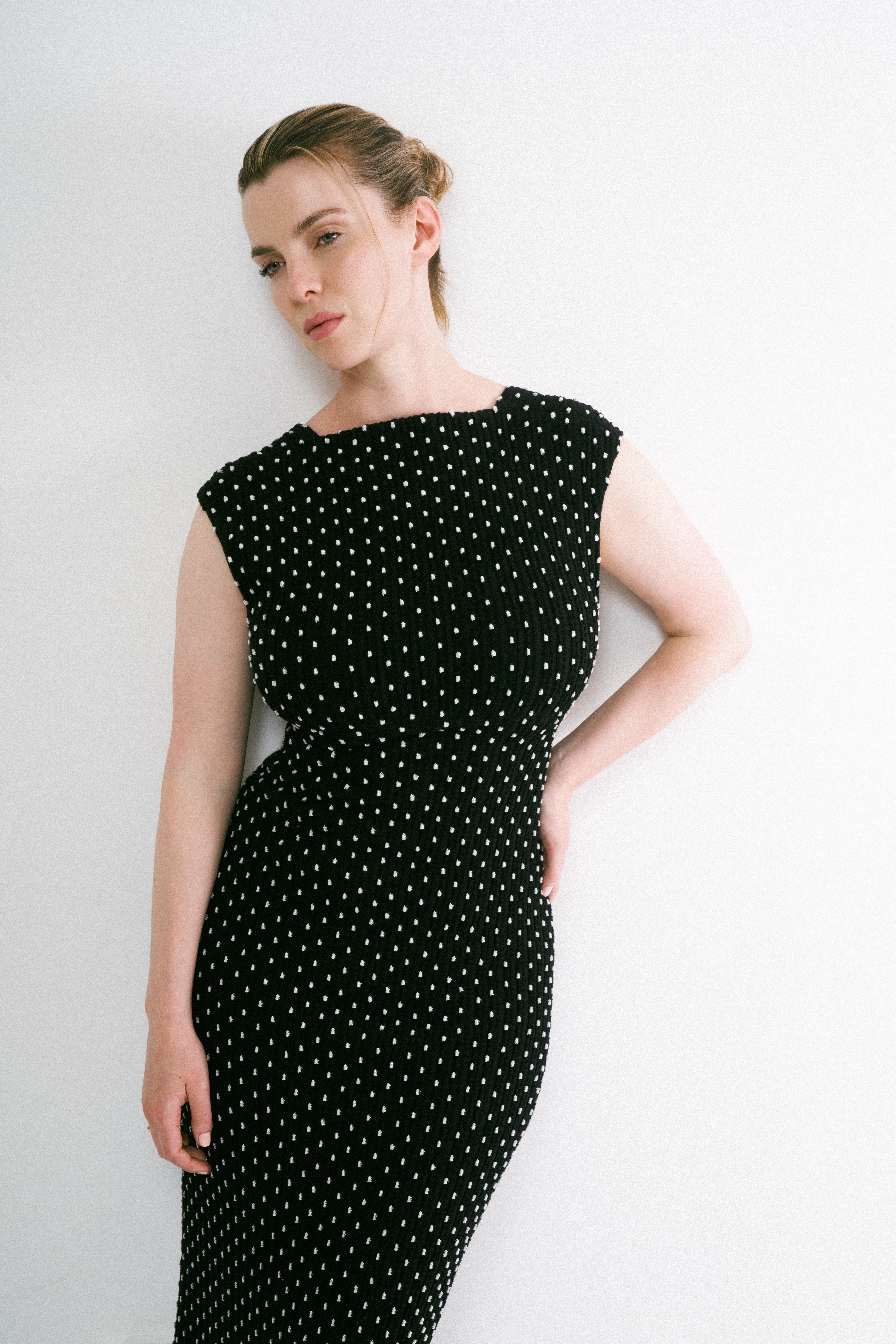
Gilpin says she's "never quite fallen in love with a character" quite like her role as Lina in Three Women.
Marie Claire: Betty, why were you so eager to play Lina?
Betty Gilpin: I was pretty obsessed with the book and felt so connected to this person—to this character—when I read it, as thousands and thousands of women did. When I saw that they were making a TV show, even though I was foaming at the mouth as an actor, as a reader, I thought, I wonder if the success of the book is because it's not a visual medium. You are able to put yourself as all three women, fan cast yourself in all three parts, and you become these people. I thought, Gosh, I feel nervous for how they're going to tell these stories because I wonder if putting literal faces to these names dissipates that magic.
The process was so the opposite of dissipation of magic. I had a general meeting with Lisa Taddeo via Zoom, and it was during the pandemic, and I realized, ‘Oh my god, she's at her house in Connecticut,’ which is five minutes from my childhood home where I was Zooming from. I was like, I wonder if I drive to her house, hold a stereo over my head, à la Say Anything, and beg for the part of Lina. I think a year went by— I just maybe made a rogue tape—then I met with Lisa, [director] Louise Friedberg, and [showrunner] Laura Eason, and tried to play it cool. But perhaps my Lina-ness came out in my inability to be cool in gushing and begging.
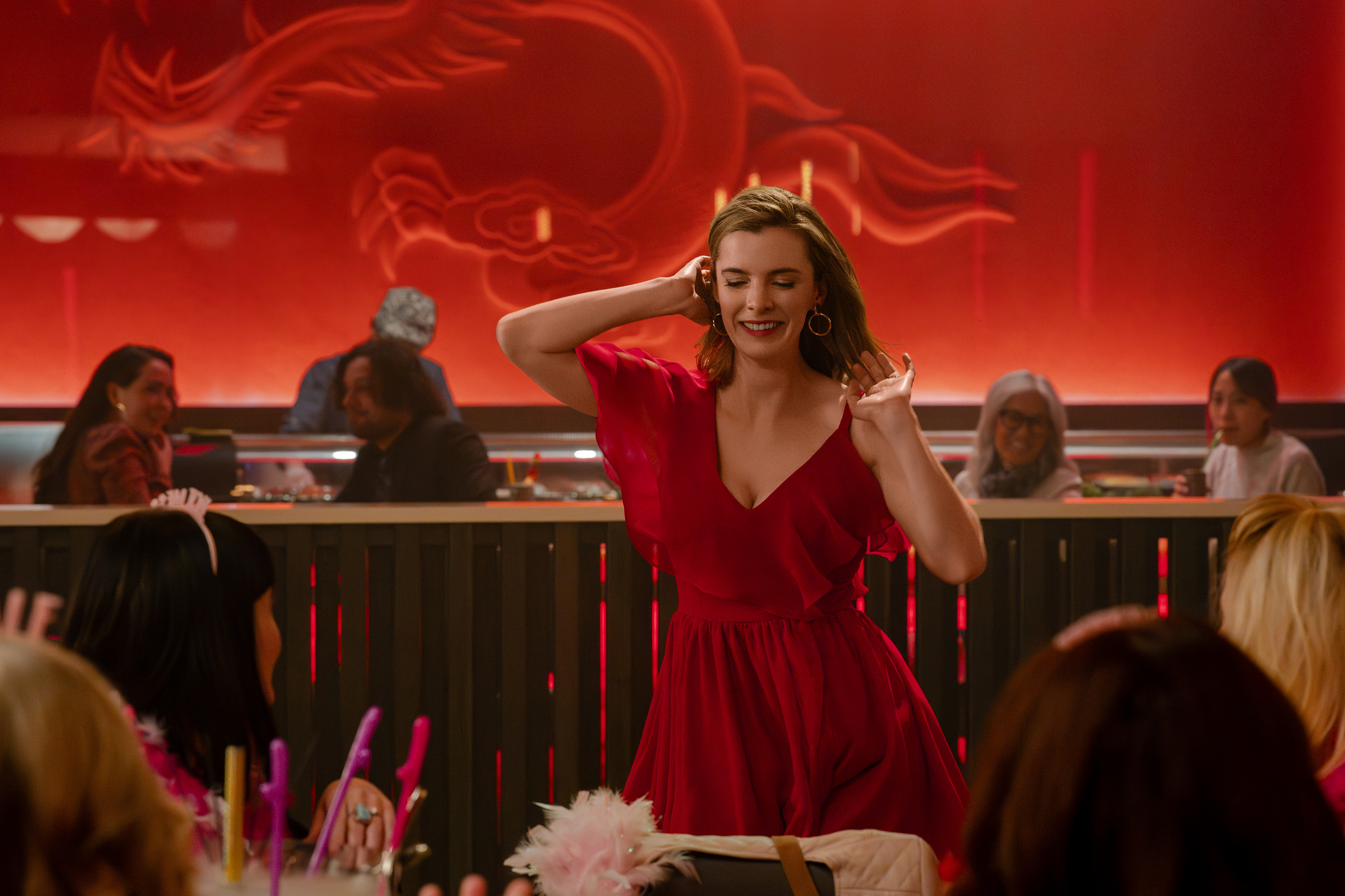
Lina (Gilpin) dances like no one is watching at a birthday dinner.
MC: Lisa, why did you choose to tell Lina’s story first in the series?
Lisa Taddeo: Lina was the first woman I met, so chronologically, it makes sense for the trajectory of the show. I've said a million times I really genuinely saw myself in all three women and hoped that everybody would or have one [woman who] maybe was most relatable but see themselves in all of them. It was almost more like Lina was the epitome of desire; in a sense, she was this walking, breathing avatar for desire. In addition to her being chronologically the first person I met and the organic beginning of the piece, she was also this stand-in for unmet needs.
MC: Three Women breaks many taboos on the page and screen. In terms of the adaptation, particularly in episode 2, were there certain parts that you were like, ‘We have to have this, I don't care what the television boundaries are?’
LT: 100 percent. With Lina—specifically in terms of fighting for stuff [to show]—we see an erect penis. It's prosthetic, but it's still an erect penis, and we don't normally see those. I grew up watching HBO too young as a kid, and my understanding of sexuality was informed by so much female nudity and never having seen male nudity—to the point that I think it frames things for you, and it gets in there and wires stuff in your brain.
With Lina's story and the idea of showing a penis, she had never had a relationship with a man or anyone's sex parts—including, really, her own—in a way that was freeing for her. So this was the first time she was going to get to look at a penis because of her husband's Catholic tendencies of not wanting that to be a part of their intimate life. There's a moment where she’s kneeling before it. It's not the almighty dick; I don't feel that way, nor would I want to portray it that way. But it's the almighty thing for Lina—this man, this person. She's losing her virginity for the first real time to herself. The details were important, not even because they were beautiful; they were important because they were part of that experience and I wanted to honor that.
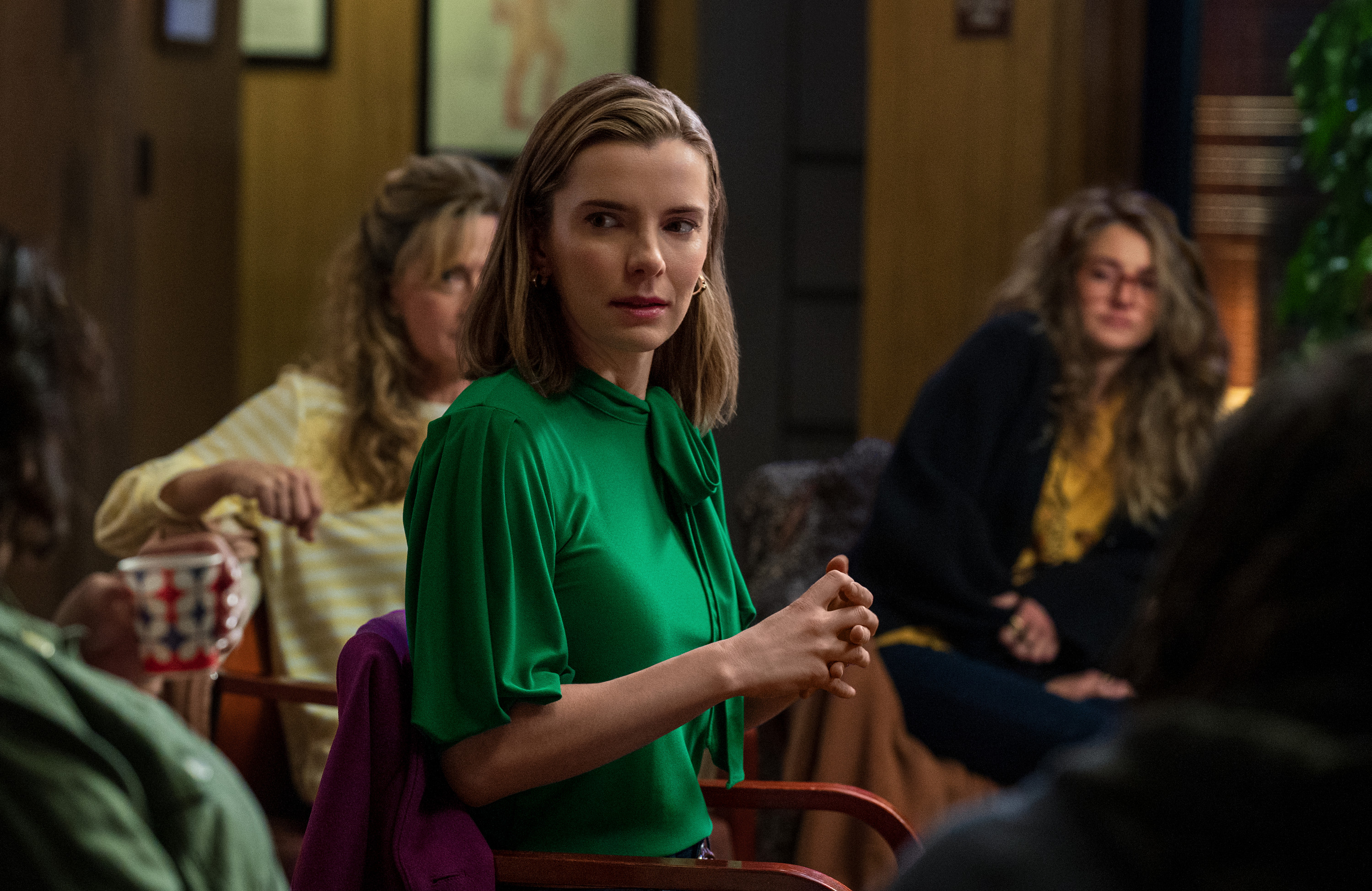
Lina (Betty Gilpin) speaks in her women's group, attended by Gia (Shailene Woodley).
MC: Lina’s intimate sex scene also shows menstrual blood. Betty, what was it like to shoot a sex scene that feels so thrilling and bold?
BG: I, as an actor, have done many sex scenes before, and I wouldn't say I was skipping to work that day, but I wasn't dragged there. Because of the nature of Lisa's book, we all recognize that these were perhaps the most important scenes in the show. It wasn't just racy, flashy ‘trailer food’ for the trailer to entice people. It was real pivotal moments in these women's lives, particularly Lina's life, where she is so attention-, love-, and touch-starved when we meet her. And then finally, the circumstances of her life meet the genre that she has always felt inside. We all knew, ‘Okay, this has to be the greatest moment of Lina's life, but also have it stay within the world of our show.’ So, be still Lina in her postpartum, menstruating body, and have those things make it strangely all the more beautiful for Lina.
It was one of my most favorite days on set I've ever had, and I don't mean that in an elbow-jokey, ‘It was awesome to get to make out with Austin Stowell’ [way], which of course it was. But it was a really profound day at work. We all felt it, and it felt so sort of holy, in a way. It felt like everyone was shaking and quiet in a respectful but not strange way. Sometimes it can feel like [when shooting] sex scenes you're sort of treated like a bat that's flown into the room. The second, ‘cut,’ is yelled, a woman with a tarp comes over and is like, ‘The tarp of shame!’ [and] covers you. You're like, ‘Sorry, sorry, I did that. Sorry, I was naked.’ Everyone's like, ‘It's okay. It's something we have to do for this piece. It's over now; just don't look, look at the ground.’ It felt so the opposite. It felt like group vulnerability in a wonderful communal way.
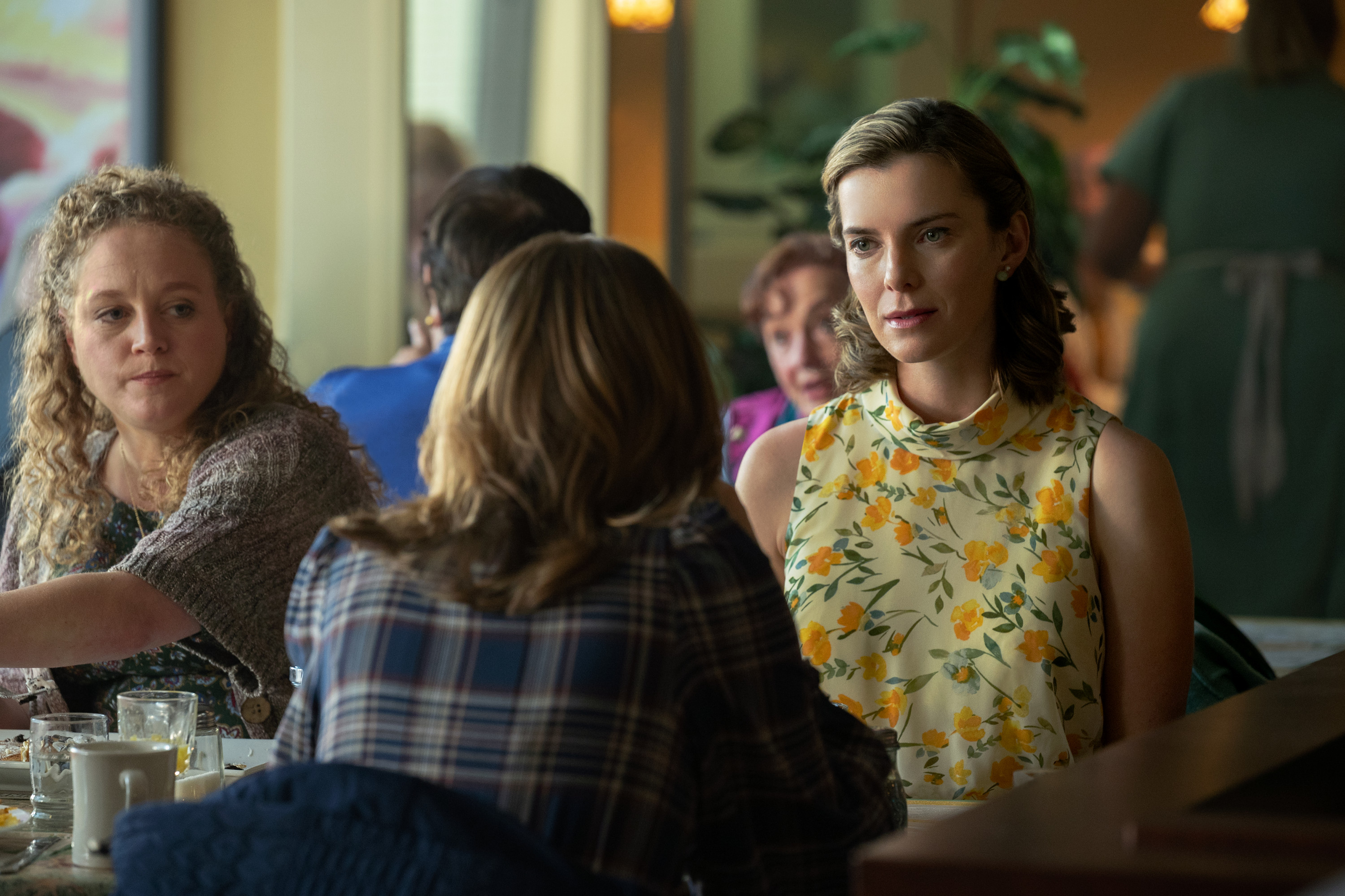
Lisa Taddeo says Gilpin seemed like she had met the real Lina when she saw her audition, despite the two never interacting.
MC: Lisa, how important was it to have an intimacy coordinator on this production and can you talk about that collaboration with Claire Warden?
LT: It was beyond important. Claire’s also a fight scene coordinator, so that was sensational as well because she had such an understanding of the way bodies should move, how it looked on a screen, and how it felt in reality. I wouldn't have felt comfortable asking people to perform the scenes that were written in the scripts without Claire being there.
With Lina's story and the idea of showing a penis, she had never had a relationship with a man or anyone's sex parts—including, really, her own—in a way that was freeing for her.
Lisa Taddeo
MC: Lina’s sex scene includes an erect prosthetic penis. Was that prosthetic element something you've dealt with before, or was that new?
BG: Completely new. It's funny: For all the sex scenes I have done, a lot of them have felt there's a certain level of fantasy and smoke and mirrors that almost tip it over into being unsexy or sterile and strange. In your brain, it makes you go, ‘I forget what sex looks like. I forget what's real. It's as if I've never had sex in my real life. I know now they've said, ‘Action,’ I'm supposed to do what sex is, and honestly, I don't remember.’ Because it seems like the main goal is to sort of make the audience believe I'm a 12 on the misogyny one to 10 scale of how women should look. I'm supposed to look and seem and sound like I am this perfect horny creature that doesn't exist in nature who—spoiler alert—probably is bad at sex because you're just like a cartoon made by bro AI. [In Three Women], the existence of things like period blood and fake penises, I was like, ‘Oh, these are familiar figures to me. I can simulate real sex instead of sterile, unsexy computer sex.’
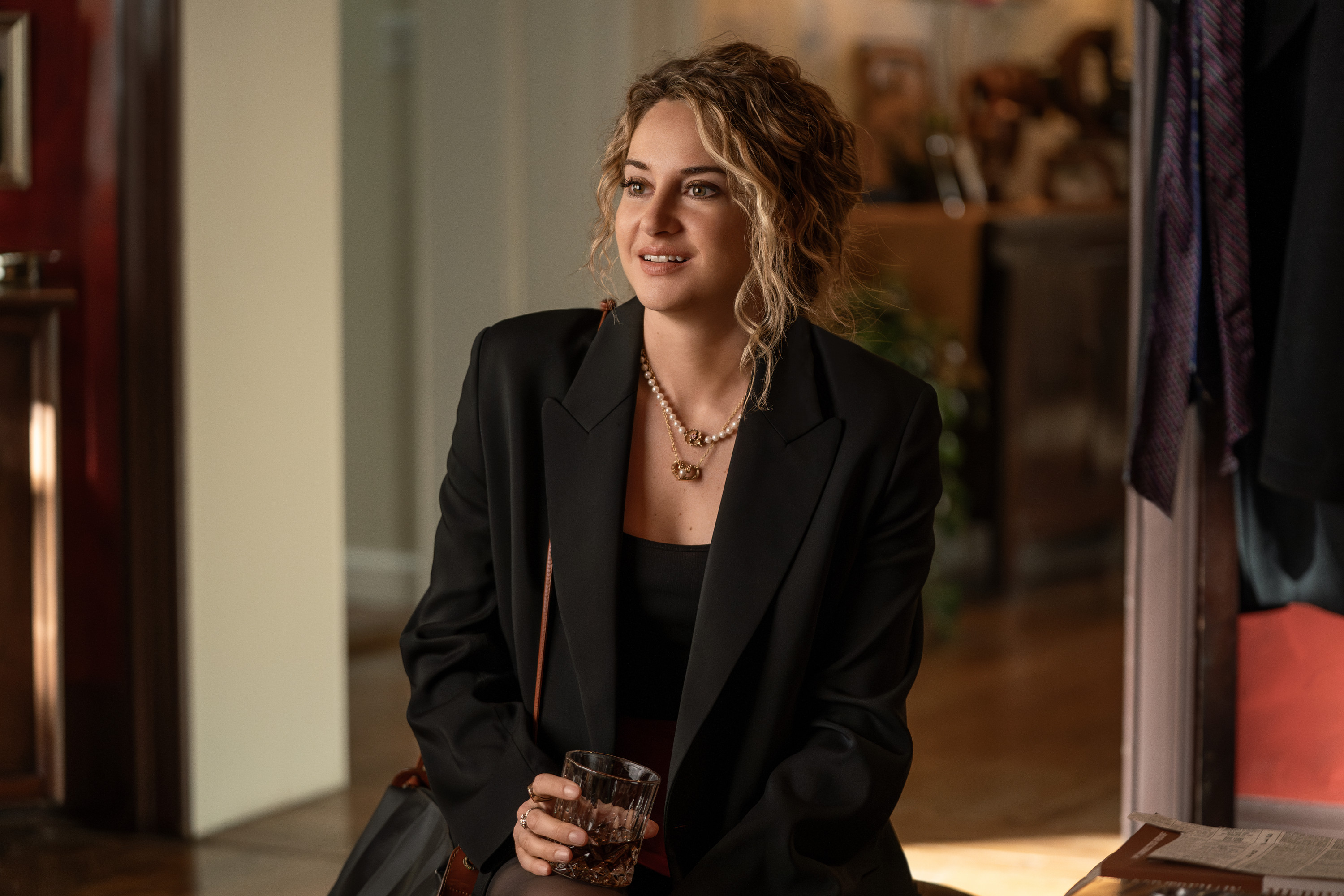
Woodley plays a stand-in for Taddeo named Gia.
MC: Lisa, what was that experience like collaborating with Betty, an incredible writer herself, to create a woman you know and have written about and then seeing her on-screen through Betty's performance?
LT: I felt like Betty had met Lina when I saw the audition. But she hadn't. It was absolutely eviscerating. It's a mind-blowing performance, so much of it really doesn't feel like a performance. I think it's a testament to Betty's talent as an actor, but I think as a reader and writer. It's also that she was able to truly feel and get the words that I wrote; because she is so tuned into words, the words really landed and she felt who she was.
MC: Lina’s episode also reflects on her adolescence, and while much of it is about her trauma, there’s also this moment of freedom in the car. Was there anything specific that you were tapping into during these scenes?
BG: The part I cried the hardest when I watched episode 2 was where it cuts from adult Lina driving to young Lina driving like that; I was choking on sobs. A car is this little private cell on wheels where you get to have the better version of the conversation, where, in real life, you tripped over your words, but in the car you said it perfectly, or you sing like Adele. Especially for Lina, it's this little fantasy world where she doesn't have anybody around her telling her her pain isn't real, or she's being too loud or too much, or her clothes are too bright or too low cut. It's the moments between daycare and church and the doctor that she can pretend to be the Princess Buttercup in her own life. And God, certainly I was thinking about me at 16; there was a lot more Camel Lights and performed misery and performed cragginess. But definitely being in the car was those moments of fantasy and solace for me as a 16-year-old and remains that way as a 38-year-old whenever I'm behind the wheel.
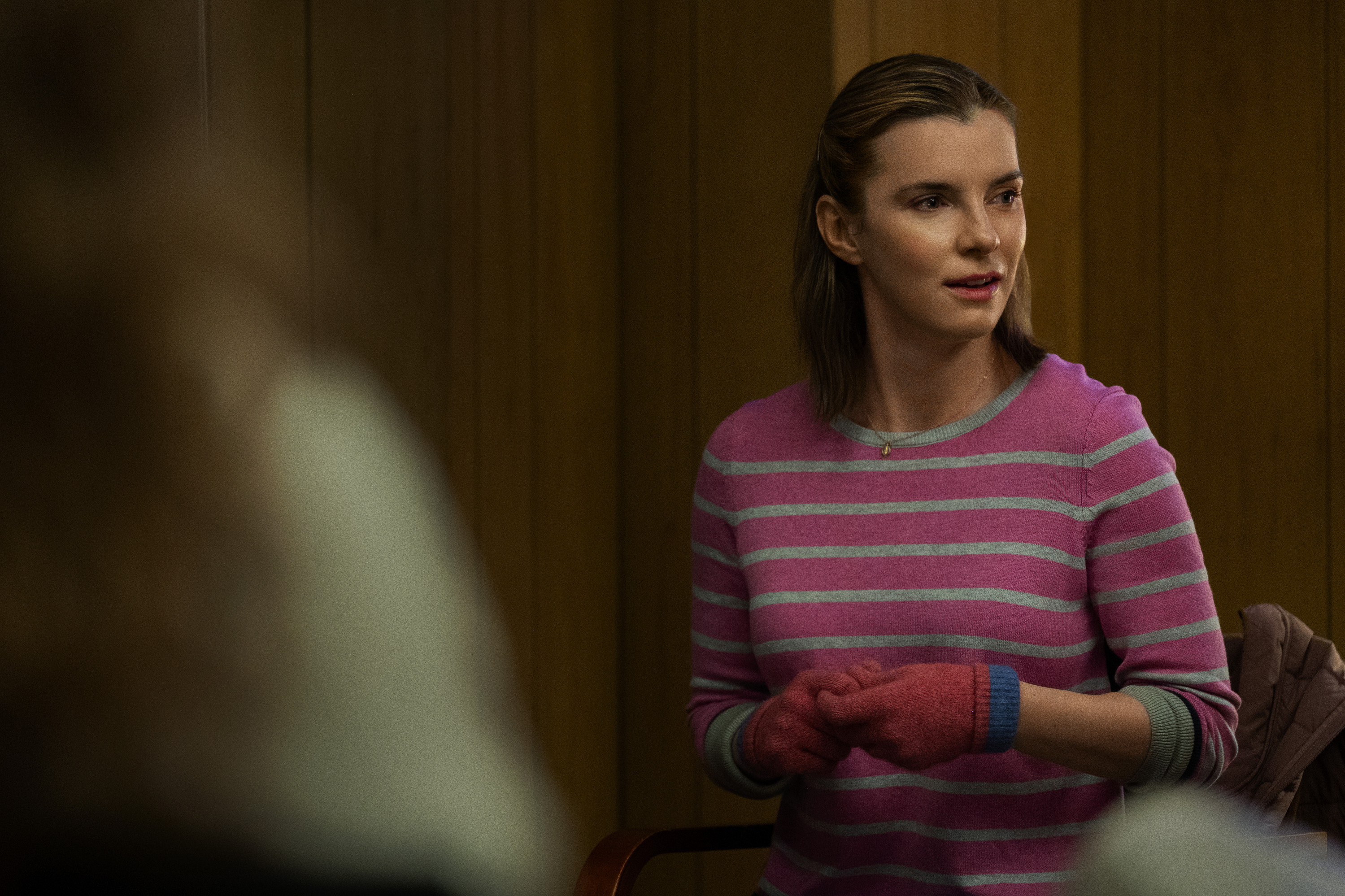
Betty Gilpin stars as Lina in Three Women.
MC: Betty, what will you take from your experience working on Three Women?
BG: It was my first big part after having had a baby, and certainly my first intimacy scenes after having had a baby. Everyone's postpartum journey is different, but I definitely felt that there were just things that were different about me physically; my skin was a mess, and my hormones were going crazy. I think particularly for intimate scenes, but just in general, throughout my 20s, it felt like, aesthetically, I was the person whose job it was to bring drugs to the party for whatever project I was working on—if the way I looked was like the drugs of the piece. This was the first time that it felt like, ‘What if, instead of cocaine, I brought a newspaper?’ I was going to check different boxes this time and not the one that I promised I always would in a show about sex, and it felt nervous-making to me like, ‘Am I allowed to look like myself?’ Then when I got to work, ‘Oh, we're adding stretch marks in makeup. We're adding a C-section scar. We're purposefully lighting the scene where I'm trimming my pubic hair in such a way where my tits look worse. It felt like, Oh, we're all leaning into what real women feel and look like. It felt so creatively liberating, and I think that environment is the reason I was able to play the character as fully as I wanted, because I didn't feel like, first and foremost, I was there to bring aesthetic cocaine. First and foremost, I was there to be this person.
This interview has been edited and condensed for clarity.
Emma Fraser is a freelance contributor to Marie Claire. A reporter and critic with 15 years of experience, she covers television and movies, with a specialty in costume design and TV history. From the moment Emma first watched The X-Files, My So-Called Life, and E.R., she wanted to pull back the curtain of this industry. Emma has bylines at The Daily Beast, Backstage, IGN, Elle, Town & Country, Vulture, Thrillist, Little White Lies, and other outlets.